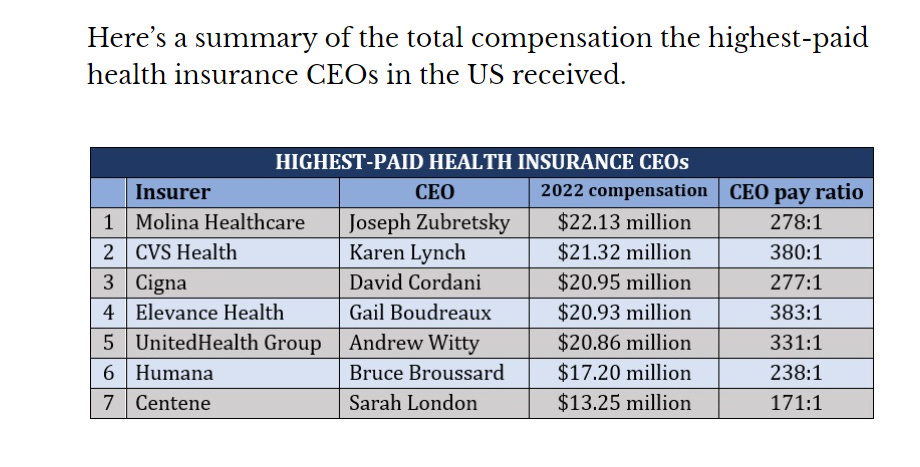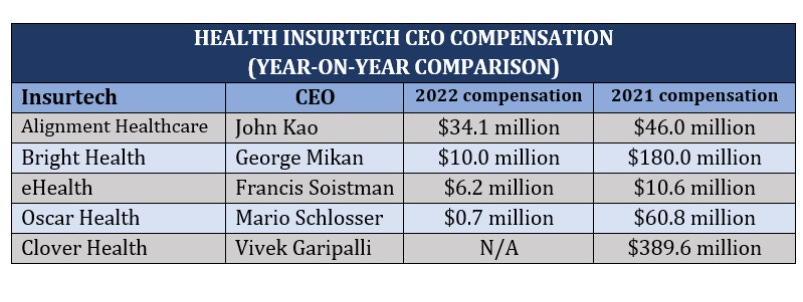The Invisible Power of Excessive Wealth
An illness we'll never see in the DSM
Hey there,
Today we’re going to have the type of (dinner? breakfast? you choose!) conversation that I hope every family is having. It’s about how excessive wealth is poisoning our healthcare system and way beyond. If that sounds a little heavy - it is - but I’ll do my best to be a bit charming about it! We can forget the awkward Thanksgiving debate about politics. Let's dive into something deeper: how a small group at the top is impacting the health and well-being of everyone else.
The specter of "us vs. them" pervades our society, particularly stark in the realm of healthcare - clinician vs. administrator, patient vs. health insurance, etc. But what if this dichotomy masks a deeper truth? What if the "them" isn't a shadowy cabal of villains (even though I do my best to call out their shills on social media), but rather a disease of excessive wealth corroding the very fabric of our society, healthcare included?

Let's begin by defining this "disease." In America, the excessively rich are those with assets exceeding $30 million or annual income of at least $2 million per household. Comprising a mere 0.1% of the population, they control over 20% of the nation's wealth. These are not your "millionaires next door," but individuals who amassed their fortunes through tech, finance, real estate, and other lucrative industries.
Now, consider the healthcare landscape. Costs spiral out of control, access remains uneven, clinicians flee at alarming rates and a persistent sense of unease hangs heavy.
Is this simply a product of systemic flaws? Or are there more insidious forces at play?
Excessive wealth, it turns out, has its tentacles firmly embedded in healthcare.
Consider these facts:
The excessively rich wield immense influence: Lobbying efforts and campaign contributions from this elite group shape policies favoring their wealth accumulation, often at the expense of the public good. This manifests in policies like lowering taxes on investment income and removing caps on executive pay, further widening the economic gap and limiting resources for public healthcare.
The wealth gap expands, healthcare suffers: While the excessively rich saw their ranks swell by 10% during the pandemic, millions of Americans lost jobs and healthcare access. This stark contrast exposes the inherent flaw in a system where wealth concentration prioritizes the few over the many.
Philanthropy with strings attached: While some excessively rich individuals make headlines for charitable giving, much of it goes to institutions with personal or corporate interests, leaving the broader community underserved. Additionally, donor-advised funds allow them to shield wealth from taxes, further limiting its societal impact.
Health insurance, a wealth haven: A significant portion of the excessively rich is directly tied to the health insurance industry. This creates a conflict of interest, where profit takes precedence (as we are all painfully aware by now) over patient well-being, clinical quality and affordable access.
These facts paint a disturbing picture: excessive wealth isn't just accumulating at the top, it's actively shaping and manipulating systems like healthcare for its own benefit. The "us vs. them" narrative becomes a convenient distraction, deflecting attention from the true culprit: a system rigged to favor the already rich and powerful.
But there's hope. By recognizing the disease of excessive wealth and its impact on healthcare, we can start formulating solutions. No surprises here:
Policy reforms: Reinstating progressive taxation, addressing lobbying influence, and promoting policies that prioritize equitable access to healthcare.
Raising awareness: Educating the public about the detrimental effects of excessive wealth concentration and its impact on healthcare access.
Supporting systemic change: Advocating for initiatives that empower communities and promote alternative, non-profit healthcare models.
The path ahead is undoubtedly complex. I’d be lying if didn’t say I feel scared all the time about the instability of the current system and how many of us are needlessly suffering underneath it. But by dismantling the "us vs. them" narrative and recognizing the true enemy - the corrosive influence of excessive wealth - we can use this awareness to dream of what things could actually be like. And in doing so, begin to build a healthcare system that prioritizes the well-being of all (or at least way more), instead of the privileged few.
Also… I have some good news!
An organization formed in 2022 to attack this enormous societal problem.
The Excessive Wealth Disorder Institute exists with a mission to create a more balanced distribution of wealth by elevating policy solutions focused on curbing the excessive wealth of the nation’s richest individuals.
I encourage you to go to their website, sign up for their newsletters, and watch this compelling video that visually explains just how excessive the wealth gap has really become.
Until next time!
Brittainy
References:
https://www.insurancebusinessmag.com/us/guides/which-health-insurance-ceos-get-the-highest-pay-467513.aspx
https://www.excessivewealth.org/



